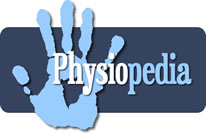David Colquhoun maintains a page on "Complementary and Alternative Medicine (CAM)". It is a worth while read. You can find his website here. Below is a fun argument about the dilemma of CAM treatments.
The dilemmas at the heart of 'alternative medicine'
All forms of ineffective treatment, 'alternative' or otherwise, pose real dilemmas that are usually neglected.
The definition dilemma
* Once any treatment is shown beyond doubt to be effective, it ceases to be 'alternative' and becomes just like any other part of medical knowledge. That means that 'alternative medicine' must consist entirely of unproven treatments.
The lying dilemma
* Suppose that a treatment owes all its effectiveness to the placebo effect, e,g. homeopathy (even Peter Fisher almost admitted as much). But in some people, at least, the placebo effect is quite real. It may be a genuine physical response, though one that does not depend in any activity of the drug, or other treatment.
* If the placebo effect is real, it would be wrong to deprive patients of them, if there is nothing more effective available. For example, if terminal cancer patients say they feel better after having their feet tickled by a 'reflexologist', why should they not have that small pleasure?
* If the foregoing argument is granted, then it follows that it would be our duty to maximise the placebo effect. In the absence of specific research, it seems reasonable to suppose that individuals who are susceptible to placebo effects, will get the best results if there treatment is surrounded by as much impressive mumbo jumbo as possible.
* This suggests that, in order to maximixe the placebo effect, it will be important to lie to the patient as much as possible, and certainly to disguise from them the fact that, for example, their homeopathic pill contains nothing but lactose.
* Therein lies the dilemma. The whole trend in medicine has been to be more open with the patient and to tell them the truth. To maximise the benefit of alternative medicine, it is necessary to lie to the patient as much as possible.
As if telling lies to patients were not enough, the dilemma has another aspect, which is also almost always overlooked. Who trains CAM practitioners? Are the trainers expected to tell their students the same lies? Certainly that is the normal practice at the moment. Consider some examples.
The training dilemma
* If feet tickling makes patients feel better, it might be thought necessary to hire professional feet ticklers who have been trained in 'reflexology'. But who does the training? It cannot be expected that a university will provide a course that preaches the mumbo jumbo of meridians, energy lines and so on.
* A good example is acupuncture. It is often stated that one of the best documented forms of 'alternative medicine' is acupuncture. Certainly the act of pushing needles into to your body elicits real physiological responses. But recent experiments suggest that it matters very little where the needles are inserted. There are no 'key' points: it is the pricking that does it. But its advocates try to 'explain' the effects, along these lines.
o "There are 14 major avenues of energy flowing through the body. These are known as meridians".
o The energy that moves through the meridians is called Qi.
o Think of Qi as "The Force". It is the energy that makes a clear distinction between life and death.
o Acupuncture needles are gently placed through the skin along various key points along the meridians. This helps rebalance the Qi so the body systems work harmoniously.
I suppose, to the uneducated, the language sounds a bit like that of physics. But it is not. The words have no discernable meaning whatsoever. They are pure gobbledygook. Can any serious university be expected to teach such nonsense as though the words meant something? Of course not. Well so you'd think, though a few 'universities' have fallen for this, to their eternal shame
Obviously it isn't always neccessary to wait for a treatment to be unequivocally proven before it's use. However, it's basis should at least be plausible.






0 comments:
Post a Comment